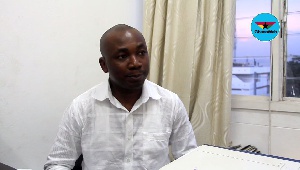The growing pension bill for non-contributors who continue to draw larger amounts from the Consolidated Fund obviously is not the only problem bedeviling Ghana’s pension scheme.
One other critical area of concern is the meagre benefit received by people who have remained faithful to contributing to the scheme throughout their working life.
As professors and PhD holders in Ghana’s premier university, the University of Ghana, one would have thought that they would be spared from such “unbefitting” pension benefits.
Prof Godfred Bopkin shared a very sad story of how renowned retired professors from the University are awarded GHC300 to GHC600 as benefits after the long years of service to the country.
“At some point in time I didn’t know what to do with my life so walked up to the registry to find out how it’s like to be on retirement on the University’s GUSS. I called a friend who gave me insight into it and I saw that some of the renowned Professors we hear all over, some of them take monthly support of GHC300, GHC400, GHC600. These are university Professors whose pension can’t even take care of their cars,” Prof. Bopki revealed.
Urging workers in general not to rely solely on their pension benefits after retirement, Prof. Bokpin advised them to invest in businesses that can yield returns to cater for them later in life.
Vice President Bawumia also indicated that the growing gap between pensioners under the contributory and their non-contributory counterparts was unacceptable, and urged policymakers and administrators to ensure there is equity.
Speaking at a high-level stakeholder meeting on Unification of Pension Schemes in the Public Sector in Accra, Dr. Bawumia said, "We see that the average pension benefits under the contributory scheme are less than that of a non-contributory scheme. In 2016, a pensioner under the contributory scheme received on average ¢127 monthly less than the pensioner under the non-contributory scheme."
He added, “The gap widened to ¢222 in 2017. The prediction is that the gap will widen over time."
He warned of the dangers of maintaining the status quo, arguing that the rising pension’s bill was not sustainable.
“Future governments should not have to resort to borrowing with its accompanying interest costs to pay pension benefits to retirees. Any government that resorts to this kind of borrowing cannot build a resilient economy,” Dr. Bawumia advised.
Business News of Friday, 4 May 2018
Source: www.ghanaweb.com

















